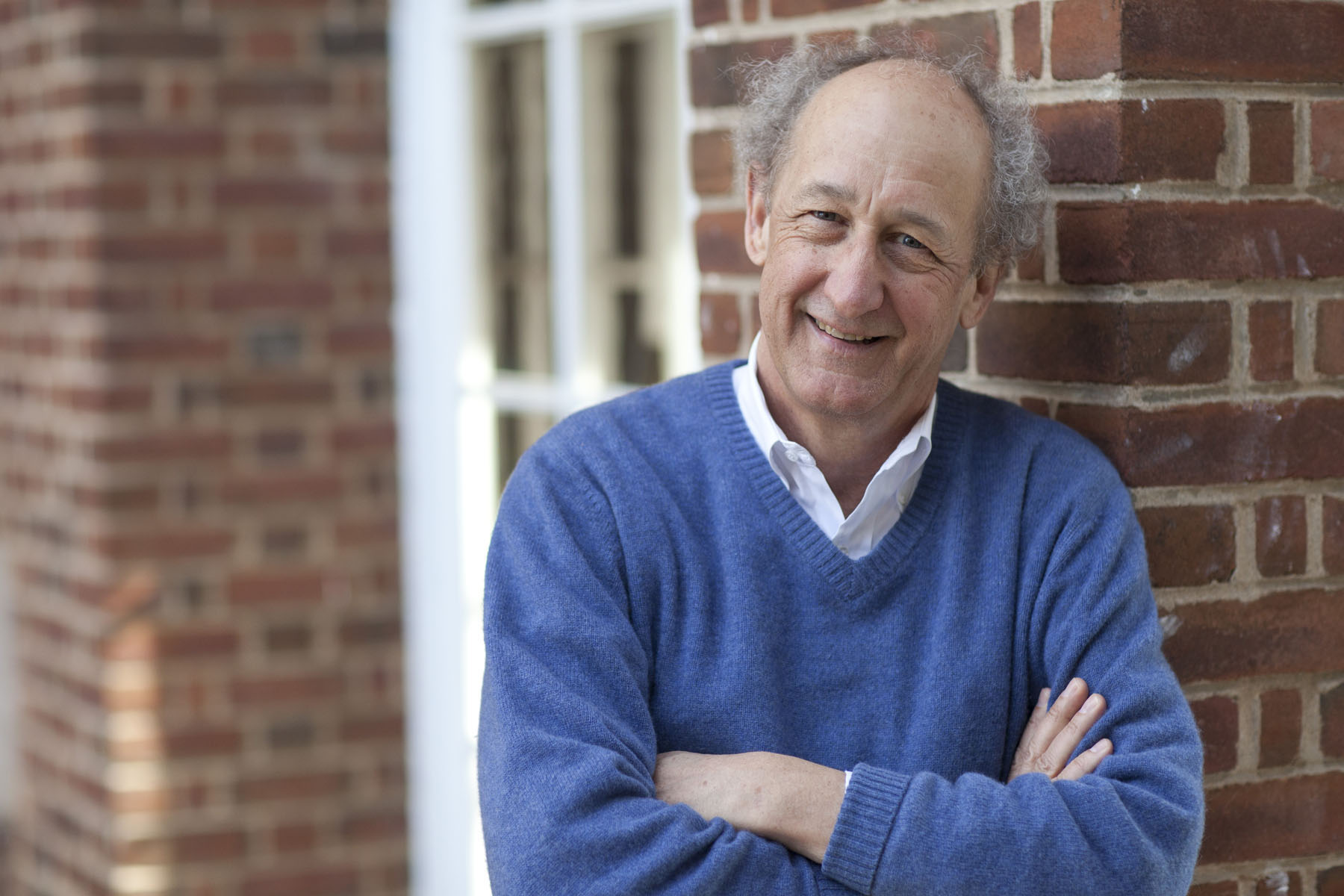March 10, 2011 — James N. Galloway, the Sidman P. Poole Professor of Environmental Sciences at the University of Virginia, on Wednesday discussed the effects of nitrogen pollution on the environment as the 2011 Distinguished Guest Lecturer to the Environmental Chemistry Group of the Royal Society of Chemistry in London.
A 2008 Tyler Environmental Prize winner, Galloway is widely recognized as a leading international authority on how excessive reactive nitrogen, mostly from man-made fertilizers, cycles through the environment, resulting in a cascade of detrimental effects. He is associate dean of research in the College of Arts & Sciences.
Galloway's lecture is the keynote of a daylong symposium exploring the pervasive and persistent effects of reactive nitrogen on Earth's environment.
In its naturally occurring inert form, nitrogen is harmless and abundant. But research shows that food and energy production are causing reactive nitrogen to accumulate in soil, water, the atmosphere and oceans, contributing to the greenhouse effect, smog, haze, acid rain, coastal dead zones and stratospheric ozone depletion.
Last month, Galloway and his research assistant, Allison Leach, unveiled a new user-friendly, Web-based nitrogen footprint calculator to raise the profile of the nitrogen issue and galvanize people to action. The calculator helps people understand how they can reduce their nitrogen footprints by using less energy, traveling less and changing their diets.
The Environmental Chemistry Group's annual Distinguished Guest Lecture and Symposium has had a long-standing tradition of attracting eminent and engaging speakers, included Nobel Prize winners, from across a spectrum of fields informing and expanding understanding of the environment through chemistry.
As the 2011 Distinguished Guest Lecturer, Galloway received a medal and scroll in recognition of his achievements.
Also recently, Galloway was named as a trustee of the Marine Biological Laboratory at Woods Hole, Mass. He is a frequent visiting scholar there.
A 2008 Tyler Environmental Prize winner, Galloway is widely recognized as a leading international authority on how excessive reactive nitrogen, mostly from man-made fertilizers, cycles through the environment, resulting in a cascade of detrimental effects. He is associate dean of research in the College of Arts & Sciences.
Galloway's lecture is the keynote of a daylong symposium exploring the pervasive and persistent effects of reactive nitrogen on Earth's environment.
In its naturally occurring inert form, nitrogen is harmless and abundant. But research shows that food and energy production are causing reactive nitrogen to accumulate in soil, water, the atmosphere and oceans, contributing to the greenhouse effect, smog, haze, acid rain, coastal dead zones and stratospheric ozone depletion.
Last month, Galloway and his research assistant, Allison Leach, unveiled a new user-friendly, Web-based nitrogen footprint calculator to raise the profile of the nitrogen issue and galvanize people to action. The calculator helps people understand how they can reduce their nitrogen footprints by using less energy, traveling less and changing their diets.
The Environmental Chemistry Group's annual Distinguished Guest Lecture and Symposium has had a long-standing tradition of attracting eminent and engaging speakers, included Nobel Prize winners, from across a spectrum of fields informing and expanding understanding of the environment through chemistry.
As the 2011 Distinguished Guest Lecturer, Galloway received a medal and scroll in recognition of his achievements.
Also recently, Galloway was named as a trustee of the Marine Biological Laboratory at Woods Hole, Mass. He is a frequent visiting scholar there.
— By Fariss Samarrai
Media Contact
Article Information
March 10, 2011
/content/james-n-galloway-presents-distinguished-guest-lecture-royal-society-chemistry

